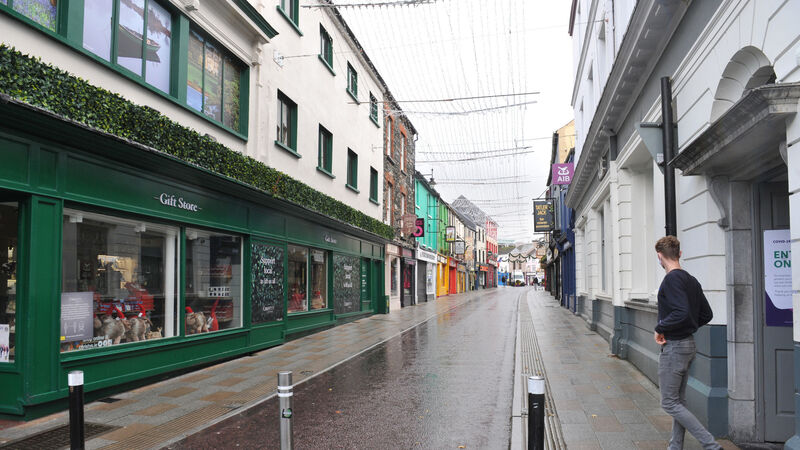Covid-19: Challenge is to keep numbers low, instead of 'oscillating' up and down, expert warns

An almost empty Plunkett Street in Killarney, County Kerry. Picture: Larry Cummins
Moving Ireland to Level 3 Covid-19 restrictions will not fix the problem, but will stop the virus getting out of control, a leading infectious disease expert has said.
Professor Sam McConkey said Level 3 restrictions will keep the country in a holding pattern.
His remarks come as there are growing pressures on the government to outline their plan for the coming weeks.
Taoiseach Micheál Martin said the government will make a decision next week, but has warned there are difficult decisions to be made regarding pubs and the hospitality sector.
Speaking on Newstalk radio, Prof McConkey said the country may also need to consider other approaches in an effort to reduce Covid cases.
"Such measures would include mass testing and controlling out breaks in businesses, hostels and other crowded settings where there are vulnerable people.
“These basic problems haven’t been solved,” he said.
Moving to Level 3 on December 1 would allow the gradual reopening of the retail sector, he added.
Toy stores could open and operate like supermarkets did during the first lockdown earlier this year with supervised queueing, and no entry without masks, he explained.
Prof McConkey said that given current Covid figures it was unlikely that the retail sector would open before December 1 as had been suggested by some retails groups.
Speaking later on RTÉ radio, Prof McConkey said that he remained optimistic about how effective the Level 5 restrictions could be, pointing out that the most recent data from Nphet was from two weeks previously which included the Halloween period when people were attending parties.
The challenge will be to keep numbers down rather than “oscillating” up and down, he said.
The virus would be easier to control if numbers were lower, which would allow cases to be traced “meticulously” and prevent onward transmission, he added. Pop up testing centres in areas where there is an outbreak plus access to GP care for zero hours contract workers would also help.
Allowing people who live in crowded conditions access to a safe place where they could isolate for 14 days would also prevent further spread of the virus and was a safe option, said Prof McConkey.
“We need an integrated hard control plan,” he added.
A world class public health service which was well staffed and well resourced would control outbreaks.
Prof McConkey said that even if numbers were reduced to the same levels as in June, there would still be “a bit of work to do in January” to get numbers down. Measures such as mass testing for public health staff, sports participants and those travelling by air should all be considered, he said.





